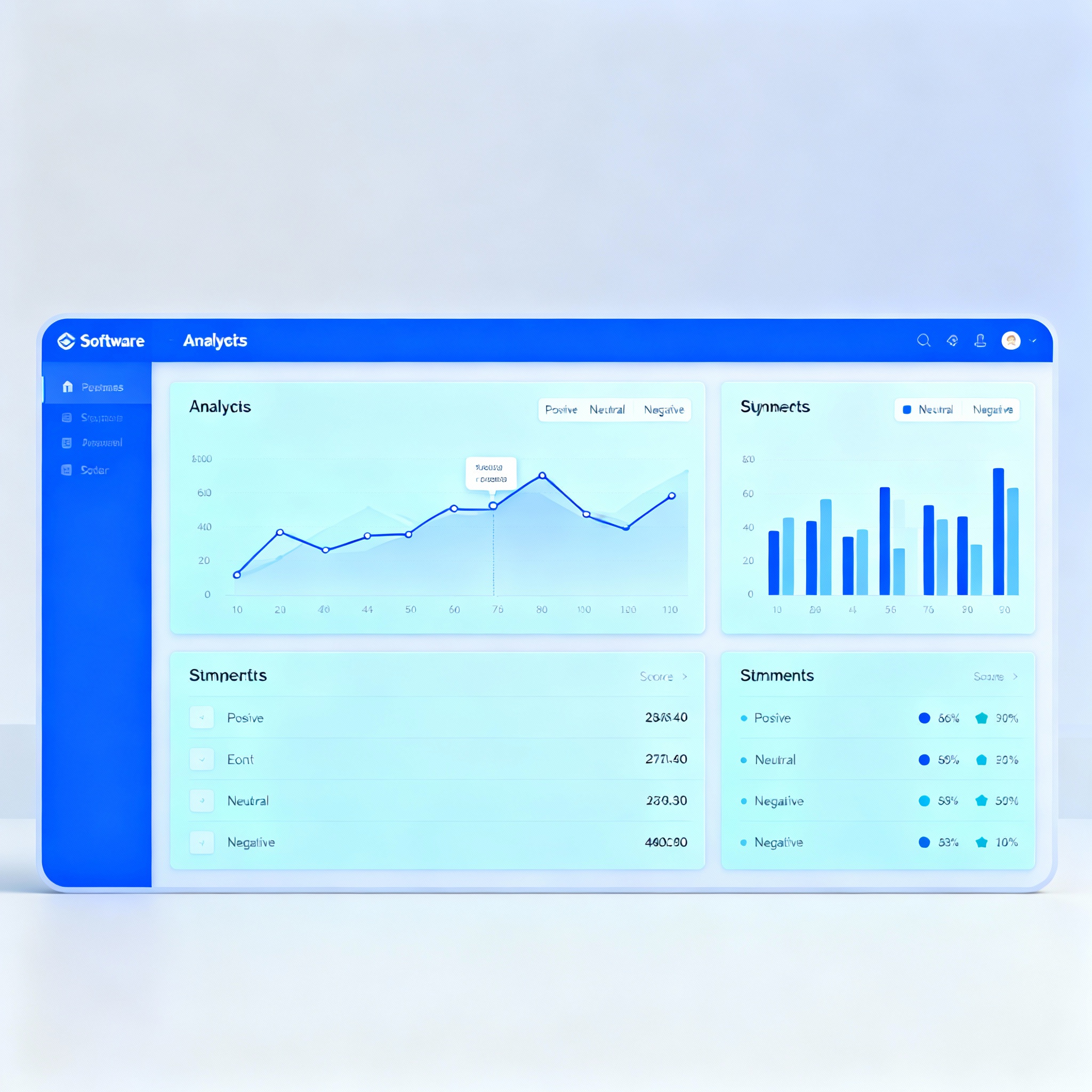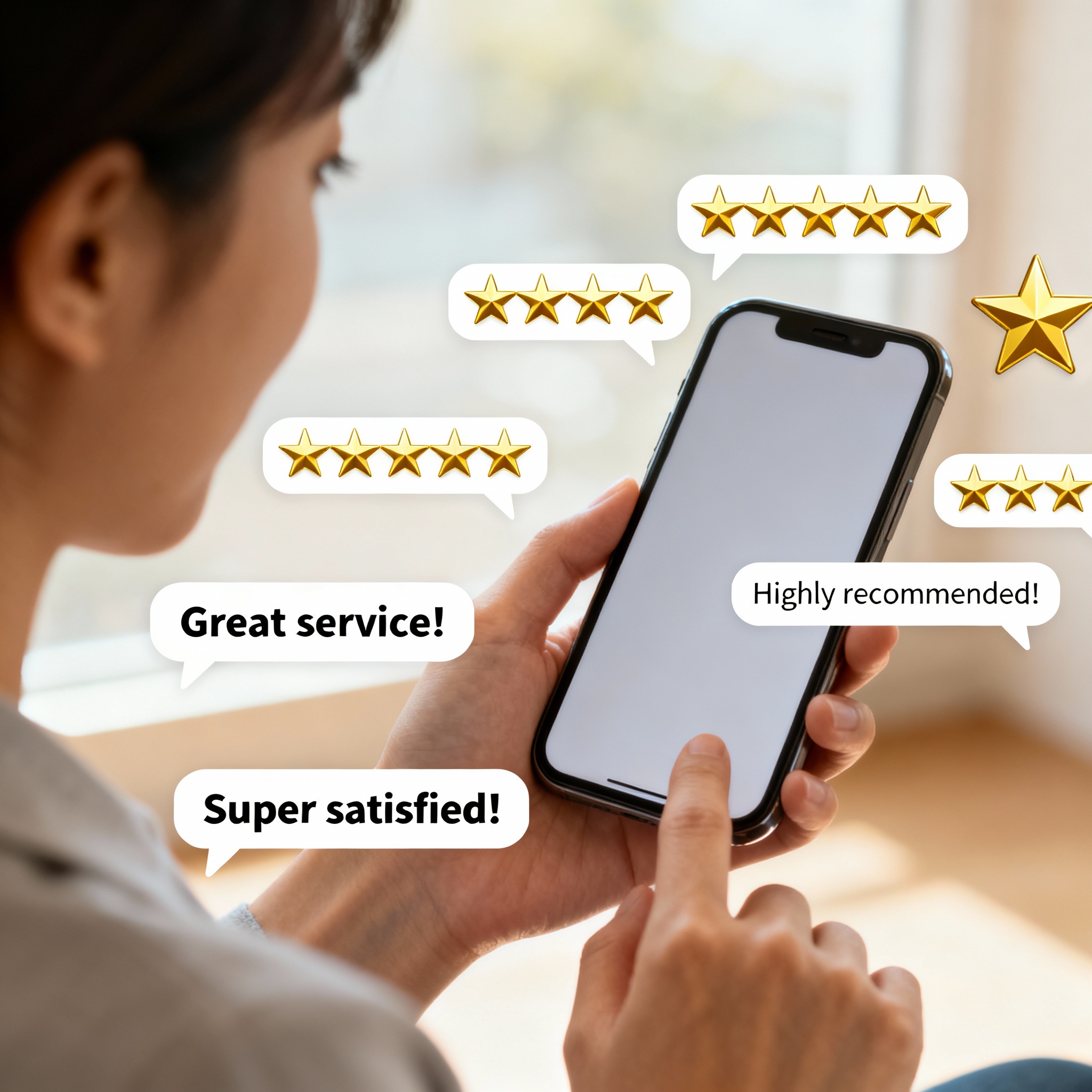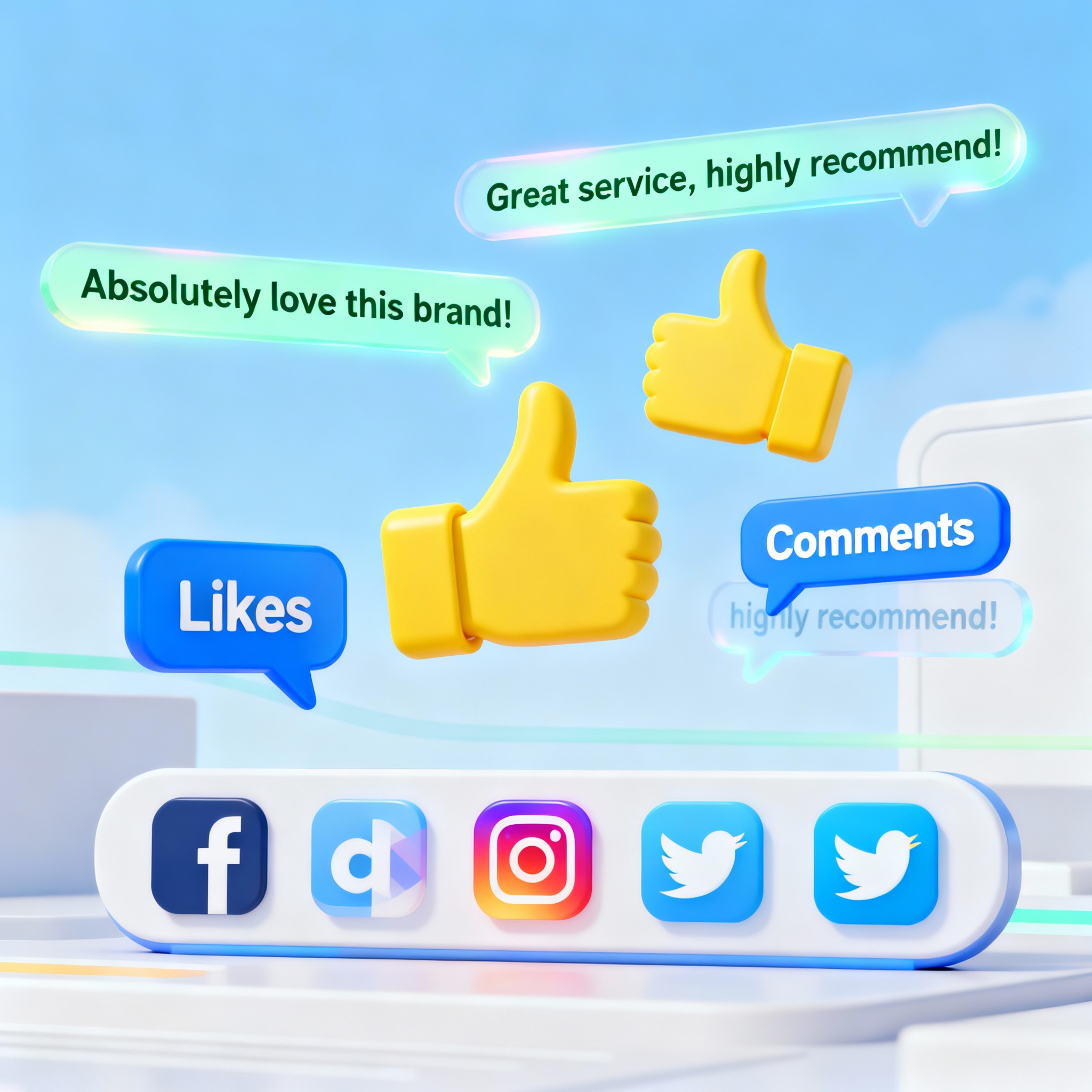Your brand’s reputation lives online. Every review, comment, and social media mention shapes how customers see you. Online reputation management services help you control that narrative and protect your digital presence.
Think about the last time you searched for a business online. You probably checked their reviews first, right? Your customers do the same thing. Research shows 93% of consumers read online reviews before making purchase decisions. That’s why understanding what online reputation management services are matters more than ever.
In this guide, you’ll discover everything about online reputation management services. You’ll learn what they include, why they matter, and how to implement them perfectly for your business.
Online reputation management services are professional solutions that monitor, influence, and improve how your brand appears online. These services track mentions across search engines, social media, review sites, and news outlets.
ORM services work like digital bodyguards for your brand. They spot negative content early and help you respond effectively. They also promote positive content to push down unfavorable search results.
The scope includes reputation monitoring, review management, content creation, crisis response, and search engine optimization. Professional providers use specialized tools and strategies to maintain your positive online image.
Key Elements of ORM Services:
- Real-time monitoring of brand mentions
- Review response management across platforms
- Negative content suppression through SEO
- Positive content creation and promotion
- Crisis management and damage control
- Social media reputation tracking
- Competitor analysis and benchmarking

Why Online Reputation Management Matters in 2025
Your online reputation directly impacts your bottom line. Studies reveal that 94% of consumers avoid businesses with negative reviews. One bad review can cost you up to 30 customers.
The digital landscape moves fast. A single negative tweet can reach thousands within hours. Online reputation management services help you stay ahead of potential damage before it spreads.
Modern consumers trust online reviews as much as personal recommendations. Your reputation score affects everything from customer acquisition to employee recruitment. Companies with strong online reputations attract better talent and charge premium prices.
Impact on Business Metrics:
| Metric | Impact of Positive Reputation | Impact of Negative Reputation |
|---|---|---|
| Customer Trust | 88% more likely to buy | 82% turn to competitors |
| Revenue | 9% average increase | 22% potential loss |
| Customer Acquisition Cost | 25% lower | 50% higher |
| Employee Applications | 50% more qualified candidates | 30% fewer applications |
Search engines prioritize credible brands. A strong reputation improves your SEO rankings naturally. This means more visibility, more traffic, and more conversions for your business.
Core Components of ORM Services
Professional online reputation management services include several essential components working together. Each element plays a specific role in protecting and enhancing your digital presence.
1. Reputation Monitoring
Monitoring tracks every mention of your brand across the internet. This includes social media posts, blog comments, forum discussions, and news articles.
Advanced monitoring tools scan millions of web pages daily. They alert you instantly when someone mentions your brand. This early warning system prevents small issues from becoming major crises.
2. Review Management
Review management focuses on platforms like Google, Yelp, Facebook, and industry-specific sites. Services help you collect positive reviews and respond professionally to negative ones.
Quick response times matter. Customers expect replies within 24-48 hours. Professional services ensure you never miss important feedback that could damage your reputation.
3. Content Strategy
Content creation pushes positive information about your brand higher in search results. This includes blog posts, press releases, social media content, and guest articles.
Strategic content placement suppresses negative results naturally. When people search your brand name, they see your controlled positive content first.
4. Crisis Management
Crisis management handles serious reputation threats quickly. This includes coordinated responses to viral negative content, data breaches, or PR disasters.
Speed matters during crises. Professional teams activate response plans within hours. They coordinate messaging across all platforms to control the narrative.
5. SEO Optimization
SEO techniques improve how your brand appears in search results. Services optimize your website, create quality backlinks, and claim all relevant business listings.
Search engine optimization for reputation differs from traditional SEO. The goal focuses on controlling your brand’s search results page, not just ranking for keywords.
How to Do Online Reputation Management Perfectly
Implementing online reputation management services effectively requires systematic planning and consistent execution. Follow these proven steps to protect and enhance your digital reputation.
Step 1: Audit Your Current Reputation
Start by searching your brand name on Google. Check the first three pages of results. Look for negative content, outdated information, or competitor mentions.
Set up Google Alerts for your brand name, key products, and executive names. Check review sites like Google Business, Yelp, and industry-specific platforms. Document everything you find.
Step 2: Claim All Online Properties
Register accounts on major platforms before someone else does. This includes social media sites, review platforms, and business directories.
Complete your profiles fully on every platform. Use consistent branding, accurate information, and professional images. Empty or incomplete profiles look unprofessional and hurt your credibility.
Step 3: Develop Response Protocols
Create templates for common review scenarios. Positive reviews need thank-you responses. Negative reviews require empathetic acknowledgment and solution offers.
Train your team on response guidelines. Establish approval processes for sensitive situations. Set response time goals (ideally within 24 hours).
Step 4: Generate Positive Content Consistently
Publish valuable content regularly across multiple channels. This includes blog posts, videos, podcasts, and social media updates.
Focus on solving customer problems. Share success stories, industry insights, and helpful tips. Quality content naturally attracts positive attention and engagement.

Step 5: Encourage Customer Reviews
Ask satisfied customers for reviews at the right moment. Timing matters—request feedback immediately after positive experiences.
Make the review process easy. Send direct links to your review pages. Offer multiple platform options. Never incentivize reviews with discounts or rewards (this violates most platform policies).
Step 6: Monitor and Measure Results
Track key metrics weekly. Monitor review ratings, sentiment scores, search result positions, and brand mention volume.
Use reputation management tools for comprehensive tracking. Adjust your strategy based on data. What works for one business might not work for yours.
Step 7: Address Negative Content Strategically
Respond professionally to negative reviews within 24 hours. Acknowledge the concern, apologize if appropriate, and offer solutions.
For false or defamatory content, document everything. Contact platform administrators to request removal. Consider legal options only as a last resort.
Common Online Reputation Challenges
Every business faces reputation challenges. Understanding common problems helps you prepare effective responses.
Challenge 1: Fake Negative Reviews
Competitors or disgruntled individuals sometimes post fake negative reviews. These reviews damage your rating and mislead potential customers.
Solution: Report fake reviews to platform administrators with evidence. Respond publicly explaining the situation professionally. Encourage genuine customers to share their experiences.
Challenge 2: Old Negative Content Ranking High
Sometimes negative content from years ago still appears on the first page of search results. This outdated information misrepresents your current business.
Solution: Create fresh, relevant content consistently. Build quality backlinks to positive pages. Use SEO techniques to push down old negative results.
Challenge 3: Social Media Crises
Viral negative posts spread quickly across social platforms. Mishandled responses can make situations worse.
Solution: Respond quickly with transparency and empathy. Take detailed conversations offline. Show concrete steps you’re taking to resolve issues.
Challenge 4: Review Fatigue
Responding to hundreds of reviews monthly becomes overwhelming. Teams struggle to maintain quality and consistency.
Solution: Implement review management software with templates and automation. Assign specific team members to review responses. Consider professional online reputation management services for high-volume situations.
Choosing the Right ORM Service Provider
Selecting professional online reputation management services requires careful evaluation. Not all providers offer the same quality or expertise.
Key Selection Criteria:
- Experience and Track Record
- Years in business
- Client case studies
- Industry-specific expertise
- Verifiable success stories
- Service Offerings
- Comprehensive monitoring capabilities
- Review management tools
- Content creation resources
- Crisis response protocols
- Transparent reporting systems
- Technology and Tools
- Monitoring software quality
- Automation capabilities
- Analytics and reporting
- Integration options
- Pricing Structure
- Clear pricing models
- No hidden fees
- Flexible packages
- Contract terms
- Communication and Support
- Dedicated account managers
- Response times
- Regular strategy sessions
- Emergency support availability
Red Flags to Avoid:
- Promises to remove all negative content (often impossible)
- Guaranteed #1 rankings (no one can guarantee this)
- Creating fake positive reviews (violates platform policies)
- Vague service descriptions
- Poor communication or unresponsiveness

DIY vs Professional ORM Services
Deciding between managing reputation yourself or hiring professionals depends on several factors. Both approaches have advantages and limitations.
DIY Reputation Management
Advantages:
- Lower costs initially
- Direct control over responses
- Immediate implementation
- Learning valuable skills
Disadvantages:
- Time-intensive demands
- Limited tools and expertise
- Slower response capabilities
- Potential for costly mistakes
Best For:
- Small businesses with limited budgets
- Low online activity volume
- Businesses without existing reputation issues
- Companies with dedicated internal resources
Professional ORM Services
Advantages:
- Expert knowledge and experience
- Advanced monitoring tools
- 24/7 coverage and alerts
- Proven strategies and processes
- Crisis management expertise
Disadvantages:
- Higher monthly costs
- Less direct control
- Requires vendor management
- Finding the right provider takes time
Best For:
- Businesses with reputation issues
- High-visibility brands
- Companies lacking internal resources
- Organizations needing crisis response capabilities
Hybrid Approach
Many businesses combine both methods. They handle routine review responses internally while keeping professional services for monitoring and crisis situations.
This balanced approach controls costs while maintaining professional backup when needed. Consider starting DIY and adding professional services as your business grows.
Tools and Resources for Reputation Management
The right tools make online reputation management services more effective and efficient. Here are essential resources for monitoring and managing your digital reputation.
Free Monitoring Tools:
- Google Alerts
- Tracks brand mentions across the web
- Sends email notifications
- Easy setup and customization
- Google Business Profile
- Manages reviews and responses
- Provides basic analytics
- Updates business information
- Social Media Native Analytics
- Platform-specific insights
- Engagement metrics
- Mention tracking
Paid ORM Platforms:
- Brand24 ($49-$399/month)
- Real-time monitoring
- Sentiment analysis
- Influencer tracking
- Multi-platform coverage
- Reputation.com (Custom pricing)
- Enterprise-level monitoring
- Review generation
- Competitive benchmarking
- Advanced reporting
- Birdeye ($299-$499/month)
- Review management
- Customer surveys
- Webchat integration
- Business insights
- Mention ($29-$99/month)
- Social listening
- Web monitoring
- Competitive analysis
- Alert prioritization
Review Management Tools:
- Podium: Simplifies review collection
- Grade.us: Automates review requests
- Trustpilot: Builds review credibility
- Yotpo: E-commerce review platform
Content Creation Resources:
- Canva: Professional graphics
- Grammarly: Writing enhancement
- BuzzSumo: Content research
- SEMrush: SEO optimization

Measuring Your Reputation Management Success
Tracking the right metrics proves your online reputation management services deliver results. Focus on these key performance indicators.
Essential Metrics to Monitor:
1. Average Review Rating
- Track across all platforms
- Monitor month-over-month changes
- Set rating improvement goals
2. Review Volume
- Total reviews received
- Review velocity (reviews per month)
- Platform distribution
3. Sentiment Score
- Positive vs. negative mentions
- Neutral mention percentage
- Sentiment trend analysis
4. Search Result Rankings
- Position of positive content
- Negative content visibility
- Branded search impressions
5. Response Rate and Time
- Percentage of reviews answered
- Average response time
- Response quality scores
6. Conversion Metrics
- Website traffic from reputation channels
- Lead generation attributed to reviews
- Revenue impact from reputation improvements
Reporting Schedule:
- Weekly: Monitor urgent mentions and reviews
- Monthly: Track KPIs and trends
- Quarterly: Analyze strategy effectiveness
- Annually: Comprehensive reputation audit
Conclusion
Online reputation management services protect your most valuable business asset—your reputation. You now understand what these services include, why they matter, and how to implement them effectively.
Your digital reputation influences customer decisions every day. Ninety-three percent of consumers check online reviews before purchasing. One negative search result can cost you countless opportunities.
Start with a reputation audit today. Search your brand name and document what appears. Set up monitoring alerts and claim all your online profiles. Develop response protocols and begin creating positive content consistently.
Small businesses can start with DIY approaches using free tools. As you grow, consider professional online reputation management services for comprehensive protection. The investment pays for itself through increased customer trust and revenue.
Remember these key takeaways: Monitor constantly, respond quickly, address issues professionally, and generate positive content consistently. Your reputation builds over time through persistent effort and strategic management.
Take action now. Your competitors are already managing their reputations. Every day you wait, your reputation remains vulnerable to negative content and missed opportunities.

Frequently Asked Questions
What does online reputation management cost?
DIY reputation management costs $0-$200 monthly for tools. Professional online reputation management services range from $500-$5,000+ monthly depending on business size and needs. Enterprise solutions can exceed $10,000 monthly.
How long does reputation repair take?
Minor reputation issues improve within 3-6 months. Significant reputation damage requires 6-12 months for noticeable improvement. Severe crises might take 12-24 months for complete reputation restoration.
Can negative reviews be removed?
Legitimate negative reviews usually cannot be removed unless they violate platform policies. Fake, defamatory, or policy-violating reviews can be reported for removal. Focus on addressing concerns and generating positive reviews instead.
Do reputation management services guarantee results?
Ethical ORM providers never guarantee specific outcomes. They guarantee effort, strategy implementation, and best practices. Beware of services promising complete negative content removal or guaranteed rankings.
How many positive reviews do I need?
Aim for at least 50-100 reviews across major platforms. Businesses with 200+ reviews show significantly higher customer trust. More important than quantity is maintaining consistent new review flow.
Should I respond to all reviews?
Yes, respond to every review when possible. Thank positive reviewers and address negative feedback professionally. Even “thanks for your feedback” shows you value customer input.
What platforms matter most for reputation?
Google Business Profile matters most for local businesses. Industry-specific sites (like Healthgrades for doctors) are crucial for professional services. Social media platforms depend on your target audience demographics.
Can I hire someone to write positive reviews?
No. Fake reviews violate FTC guidelines and platform policies. Businesses caught creating fake reviews face severe penalties, account suspension, and legal consequences. Always generate authentic reviews ethically.



